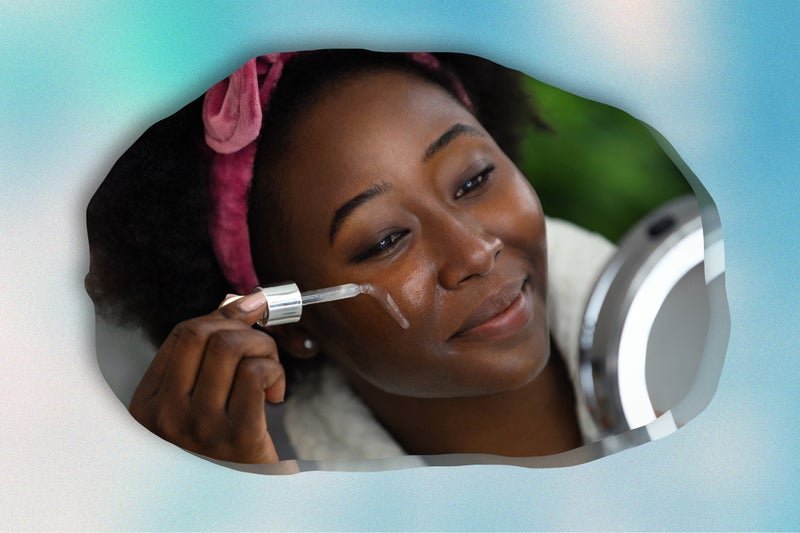These skin symptoms can be explained by the release of the stress hormone cortisol, which can lead to increased inflammation in the skin and a reduction in skin barrier function,” she explains.
In the past I’ve investigated how botox might be affecting our ability to communicate, how stress accelerates skin ageing and how beauty standards are killing our sex lives, but I’d never come across the term “neurocosmetic” before.
As someone with an impressive skincare cabinet of peptide-boosting products and various bottles labelled “happy oil” and “sleep cream”, I was fascinated when I first came across psychodermatology, a field of study that addresses the interactions between the skin and mind.
“Neurocosmetics can help alleviate itching and discomfort, manage inflammation and redness, and address stress-related skin conditions like acne and eczema, which are often exacerbated by stress.
Broadly, the idea is that as skincare products come into contact with nerve endings within the dermis, the active ingredients in those products influence your brain chemistry.






















